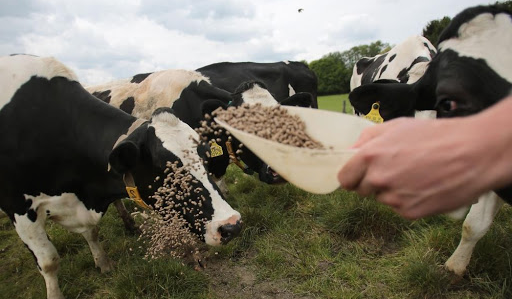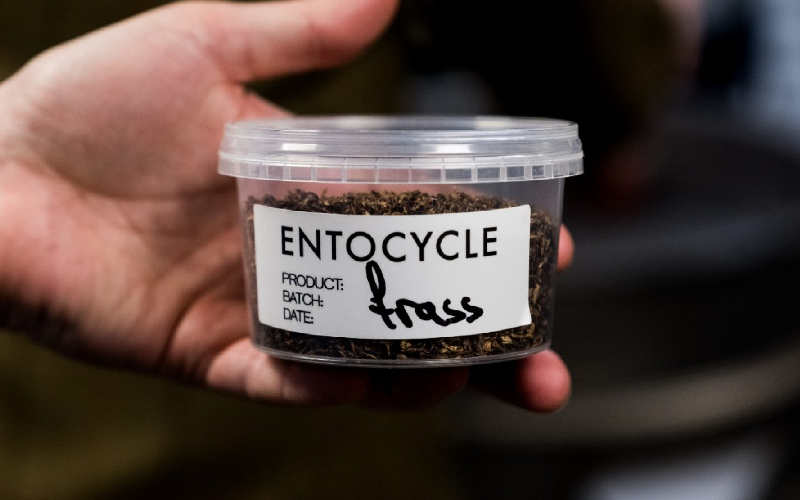In South America, rain forests continue to be cleared to grow soya to feed European animals but could the farming of insects provide the solution?
One potential solution to the challenge of feeding livestock sustainably is being trialled under the Victorian arches by London Bridge railway station.
Home to some 10 million soldier flies on any given day, Entocycle is a research and development insect farm that turns bugs into animal feed.
According to founder Keiran Whitaker, soldier flies are ideally suited as they don’t spread disease and thrive on a diet of rotten vegetation. In one of the farm’s windowless labs, thousands of larvae devour used coffee grounds from nearby cafes and spent grains from hipster breweries. “Within a week they’ll turn the waste into protein,” says Whitaker. “That’s when we harvest them.”

Five per cent of the larvae are spared and grow into flies to breed the next generation of larvae. The rest are frozen and ground into a protein-rich powder, which, Whitaker says, is perfect animal feed.
Under current EU legislation, processed insects can only be fed to farmed fish. However, this year Brussels is expected to pass legislation that would allow processed bugs to be fed to poultry.
This, claims Whitaker, would reduce pressure on South America’s beleaguered rain forests, which are being cleared to grow soya to feed European animals.
It was after witnessing this deforestation that Whitaker came up with the idea for Entocycle, which launched in 2014. The business has since received funding from the UK government and NASA, spurring investment in technology that will allow the farming process to be fully automated.
Assuming the EU makes the necessary legislative changes, Entocycle will start commercial production next year. “2020 is when we go from pilot to industrial,” says Whitaker. “We’ll soon be breaking ground on a full-sized factory.”
Dutch insect breeder Protix has officially opened its new production facility in Bergen op Zoom, the Netherlands. It marks not only a transition for the company, but also for the global insect industry.
The 14,000 square metre facility was opened by Dutch King Willem-Alexander. The Dutch Royal was given a tour around the new factory and was able to take a look at all aspects of the cultivation process: from egg to end product. The cultivation process takes place in a controlled environment and is highly automated with sensor and data systems, robots and climate control.
He officially completed the opening by handing over the first load of insect protein to Skretting, the fish feed division of Nutreco. The new plant increases the production capacity for Protix tenfold. The new plant is currently in the start-up phase, and will be scaled up in the coming months. The total production volumes have not been disclosed by Protix.
The King was accompanied by Dutch Minister Carola Schouten, Minister of Agriculture, Nature and Food Quality. According to Minister Schouten, the opening of the new factory is a milestone and a great example of circular agriculture. She also hopes that European legislation will make it possible soon to use the insect protein in the feed of chickens and pigs as well.
At the moment it is only possible in the European Union to include insect protein in fish feed. Live insects and insect oil are allowed for all farm animals. “Operating locally is very important for a circular agriculture. By using insect protein, produced locally, the pressure on the environment, water use and greenhouse gas emissions is reduced and the amounts of soy and fish meal that we must import as the Netherlands for example can be limited. The next step could be to grow the insects on manure. Then you talk about circularity at its best,” said Minister Schouten.
